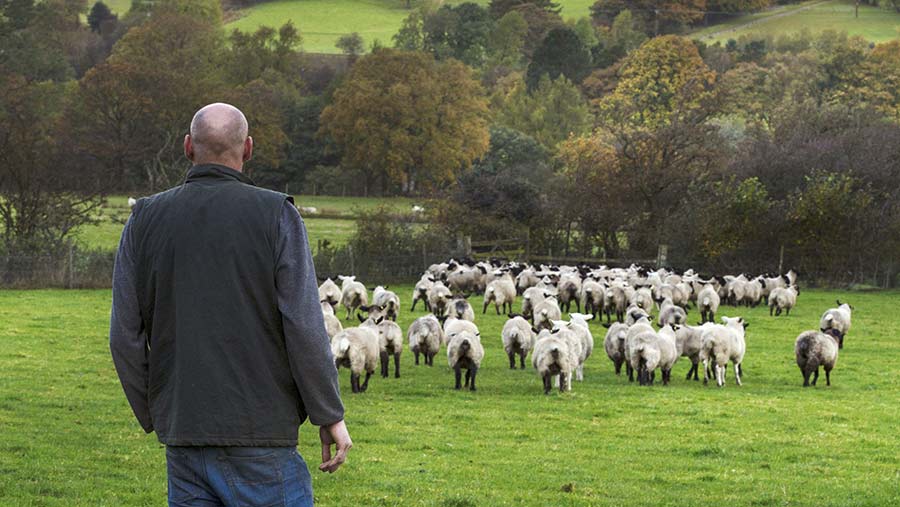Freeing up land market crucial for farming sector progress
 © Mint Images/REX/Shutterstock
© Mint Images/REX/Shutterstock Freeing up the land market and making sure holdings are available to the right people is crucial for improving the sector’s productivity, according to Jeremy Moody, secretary and adviser at the Central Association of Agricultural Valuers.
He points to the Irish government’s 2014 Agri-Taxation Review as an example. It found that farming productivity increased by 12% when land was in the hands of the proficient.
Another innovation set by Ireland, was to offer relief from income tax to people who let land for a longer time period.
See also: Farmland sale and leaseback deals an option for retirement
From a “near standing start”, this policy has brought nearly 4% (between 300 and 400,000 acres let by 3,500 farmers) of farmland into the rented sector.
A change in attitude, away from one where landowners are encouraged to keep total hold of their asset in order to receive area payments, could achieve so much, said Mr Moody.
“It’s good business management to get the best people in the best places, but this can be hard to acknowledge when you fear losing your identity and your occupation”.
Help for new entrants
Unlocking smaller holdings will also help new entrants of all ages and young farmers get a foothold in the industry.
“We need to consider who will run the best businesses and make best use of innovation,” said Mr Moody. “We’re seeing a fundamental change across the sector technologically, which cumulatively is as big a shift as the move from horse to tractor.”
Young farmers need to be given the opportunity to succeed, or they will seek opportunities elsewhere, he warned.
“The ‘who’ will manage the ‘how’. It’s amazing what people can achieve if they really want to farm. Good farmers will find ways to use even bad land to get good margins.”
Key attributes of new entrants
- Technically competent
- Proficient
- Innovative
- Determined
- Resilience
- Business management
- Marketing
- Social
- Adaptable
Access to farmland
Farmers need to seize opportunities in order to improve both business and lifestyle, Mr Moody insisted.
New housing policies, such as Class Q permitted development rights for converting farm buildings to dwellings and the revised National Planning Policy Framework, acknowledging the importance of workers taking majority control of the farming business, could encourage landowners to open land to others instead of “hunkering down”.
Easing intra-family succession is also key to granting access to farmland at an earlier age.
More change is on the way. As well as the current market uncertainty of Brexit, Defra is due to release a tenancy reform consultation in the next few weeks.
Income tax relief
Susan Twining, CLA chief land use policy adviser, agrees that freeing up the land market is a crucial part of enabling sustainable productivity growth.
“The game changer would be income tax relief on let land. It has had a positive effect in Ireland, and while they have started from a different place (they had no tenancy market compared with about one-third of farms in the UK), there are still likely to be benefits in the UK.
“It is important to point out that this is about changing the land manager (the occupier) not necessarily ownership,” she said.
If the aim is to increase productivity, it makes sense to enable existing businesses to expand through greater flexibility in the land market, she said, and the additional support of training programmes for new entrants will help them gain access to land.
TFA view
Lynette Steel, TFA farm policy adviser says the sector needs clear commitment to legislation from government, and the Treasury to look seriously at taxation changes to boost farm tenancies, particularly in terms of length of agreements.
These changes have been proposed by the TFA and the Tenancy Reform Industry Group.
“At least one-third of the agricultural area of England and Wales is farmed by those who rent their land,” she says.
“Therefore it is imperative for a progressive agricultural industry that there is a progressive tenanted sector, which can be fostered by sensible reforms of its legal and fiscal environments.”
